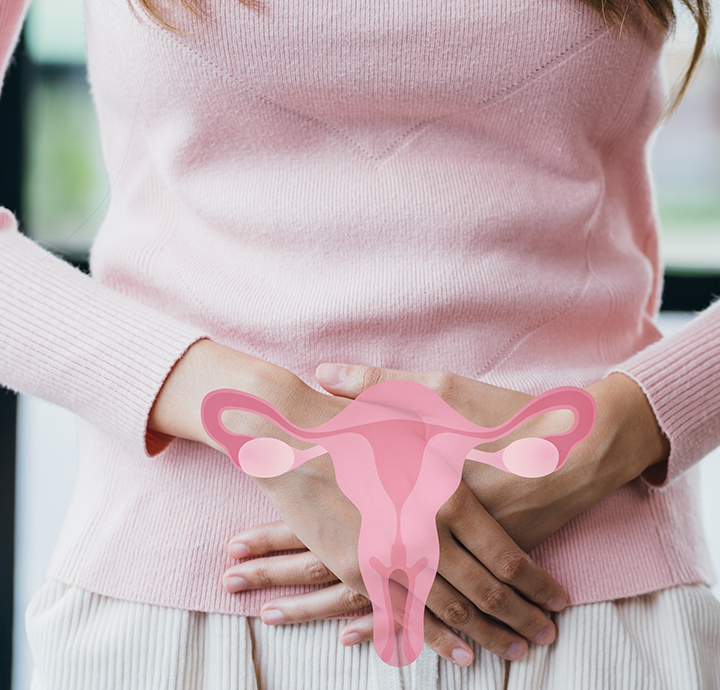
Prolactin is a hormone secreted by the pituitary gland that is involved in regulating lactation, that is, milk production, especially in women.
High prolactin levels are important for both men and women in terms of having children. An increase in the hormone prolactin in the blood is called hyperprolactinemia, while the opposite is called hyperprolactinemia. Hypoprolactinemia, on the contrary, refers to a condition where this value is lower than normal.
Prolactin hormone levels are part of the body's balance, which can be associated with infertility in humans. In general, the inability to get pregnant can be recognized by complaints of milk coming from the breasts outside the breastfeeding period. High levels, especially in women, can disrupt the menstrual cycle and prevent ovulation (ovulation). This can result in irregular or absent periods, which can make conception seriously difficult. In men, in the same situation, testosterone levels drop, sexual reluctance is observed, sperm quality deteriorates and even infertility may occur.
The normal value of prolactin hormone may vary from person to person and according to age. The generally accepted reference range is between 2-29 ng/mL (nanogram/milliliter) in women and 2-18 ng/mL in men in the non-pregnancy period. However, test methods and reference ranges in laboratories may vary, so it is important to consider the reference ranges specified by experts when evaluating the results. Prolactin elevation is an important issue as it is highly wondered whether it prevents pregnancy.
During pregnancy, this value may be higher than normal. Also, hormone levels can change during the day, so it is recommended to take the test in the morning on an empty stomach. If a person's prolactin level is above the normal reference range, a consultation with a doctor is necessary to determine the underlying cause. The specialist will examine the person's symptoms, medical history and, if necessary, assess the situation with additional tests to determine the appropriate treatment plan. Symptoms that indicate elevated prolactin include
High prolactin levels in women outside of pregnancy may indicate the presence of many different problems. This may be due to pituitary tumors or other problems with hormonal balance. Stress and intense physical activity can temporarily raise levels of this hormone. Hypothyroidism, a low activity of the thyroid gland, can also increase prolactin levels. Polycystic ovary syndrome in women can also cause the same result.
Some medications such as antidepressants, antipsychotics, and stomach acid suppressants are also considered among the factors that increase prolactin levels in people on medication. As is known, levels of this hormone naturally increase during pregnancy and breastfeeding, so there is nothing to worry about. This is the answer to the question "Does prolactin rise while pregnant?". In addition, hypothalamic abnormalities and chronic renal failure are also common causes.
Treatment of high prolactin may differ from person to person depending on the underlying causes. The method of choice may target specific conditions caused by tumors, such as prolactinoma, or may include general approaches to restore hormonal balance.
If pituitary gland tumors are causing high prolactin levels, treatment options may include medication or surgery. Usually, medication is initially preferred. Medications called dopamine agonists can help lower levels of this hormone. They also suppress its release in the body and cause the tumor to shrink. If the harmful tissue is too large or drug treatment is not effective, surgery or radiotherapy may be considered.
If the high levels are a side effect of certain medications, your doctor may adjust the dose of these medications or offer a different treatment option. There are some people who have become pregnant after prolactin treatment, and it is important to have faith in expert solutions. Because factors such as stress, poor diet, and irregular sleep can also significantly affect prolactin levels. Above all, adopting a healthy lifestyle is key to successful treatment.
In order to evaluate the effectiveness of the treatment, it is necessary to be in regular contact with one's doctor. The patient's prolactin levels will be monitored for a certain period of time and the necessary tests will be performed to assess whether the patient is responding to treatment. Each case is different and the specialist approach should be customized accordingly. The answer to the question "When can you get pregnant when prolactin is low?" can best be given by the team monitoring this process.
Low prolactin means that the levels of this hormone are lower than normal. This usually indicates a problem in the pituitary gland, where it is secreted, or is the result of a hormonal imbalance. Causes of low prolactin include hypopituitarism (underactive pituitary gland), side effects or incorrect doses of certain medications, and hypothalamic abnormalities.
This condition can also affect reproductive function. The treatment method must be determined depending on the underlying causes. The options available to the specialist often target the source of the problem and may include medication, hormone therapy, or other methods. Op. Dr. Nurettin Türktekin, who performs the best IVF treatment in Turkey, treats infertility in a holistic manner and offers different solutions. Please contact us for detailed information about the procedures.



Ovarian cysts are fluid-filled sacs or vesicles seen inside the ovary. Normally, during each menstrual period, a cyst called a follicle, which carries the egg cell and can reach 3 cm in size, forms in the ovaries. Then this cyst cracks and the egg is released. In young girls with ovulation problems, normal or physiological follicle cysts that cannot rupture can grow every month and reach 5-10 cm, while small numbers of 0.5-1 cm in size, which we call polycystic ovaries, can be seen in series. Apart from these functional cysts, benign or malignant ovarian cysts can also be seen in all age groups.
Except for the most common functional ovarian cysts, cysts can be benign or malignant tumoral cysts. In addition, as a result of infection, abscess-shaped cysts may occur, which is usually accompanied by pain and high fever.
Untreated low or high prolactin levels can lead to long-term health problems such as menstrual irregularities and bone health problems.
High prolactin levels are usually treated depending on the source of the problem. Treatment options may include medication, hormone therapy, or surgery. With the right treatment, the risk of infertility can be reduced.
No, the hormone prolactin is found in both men and women. It regulates milk production in women and plays a role in various physiological processes in men.